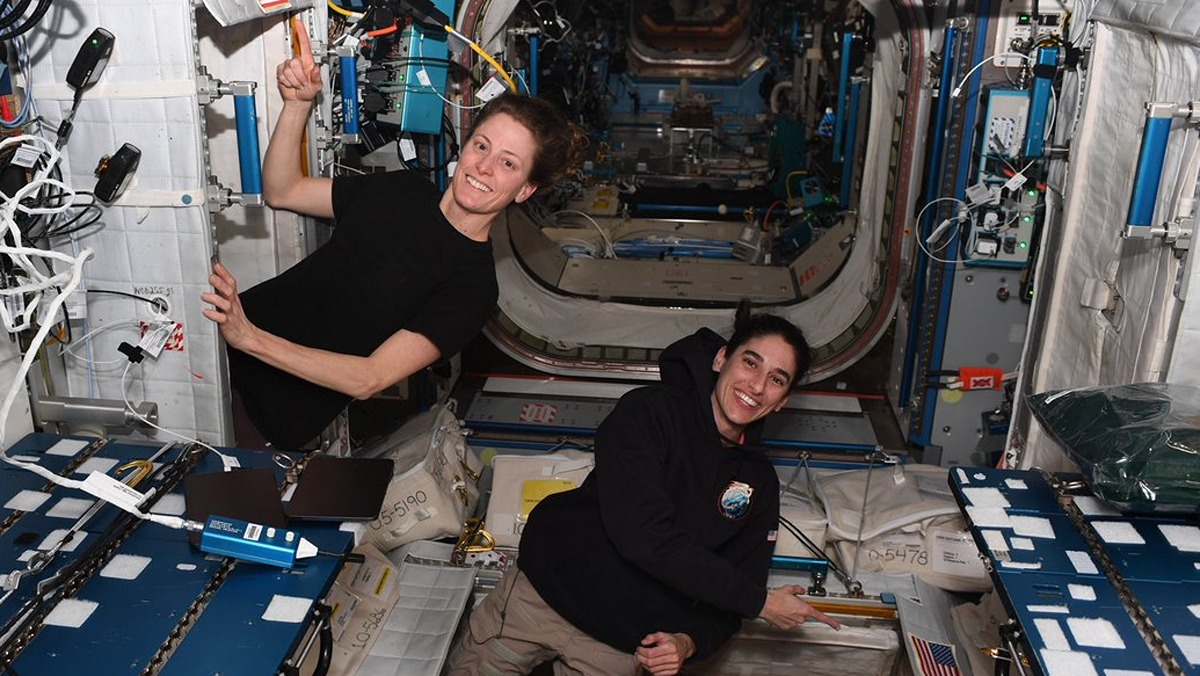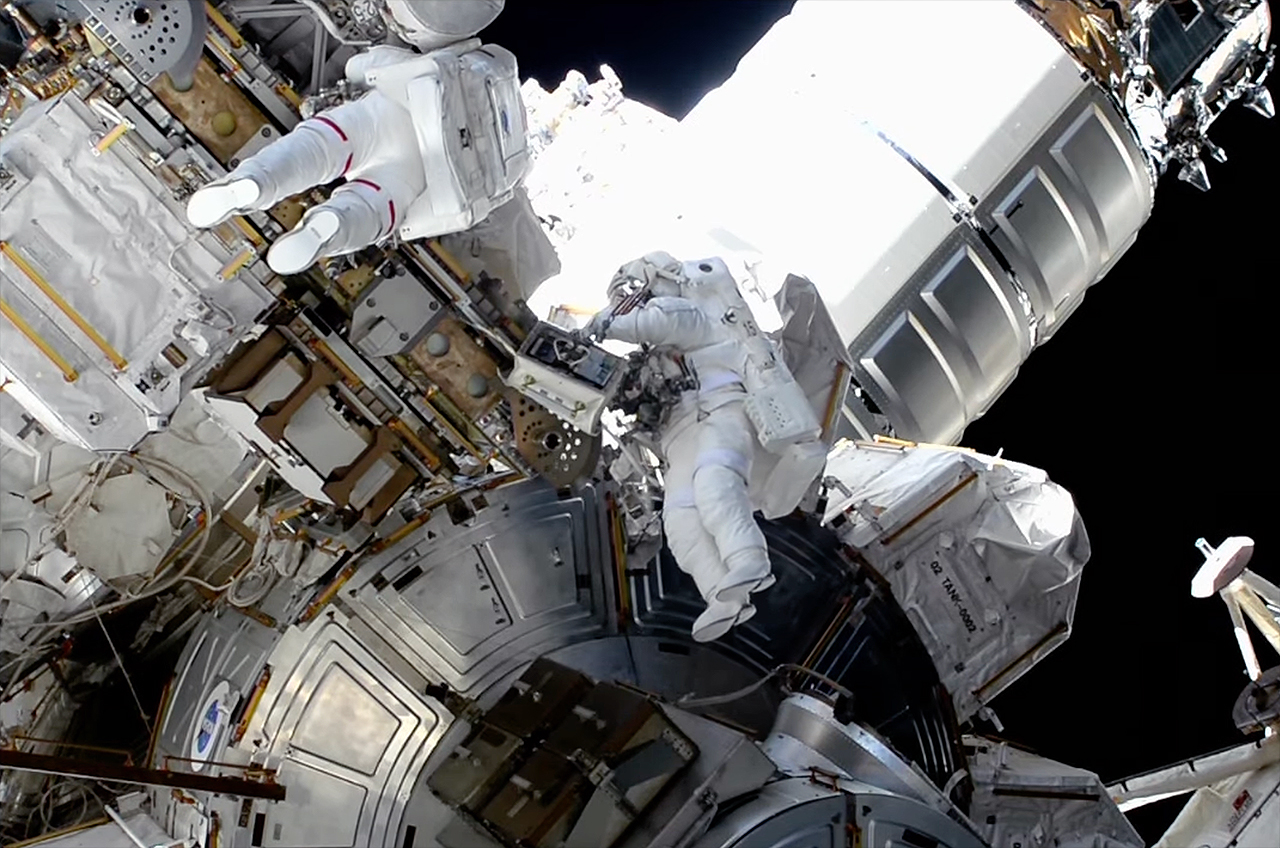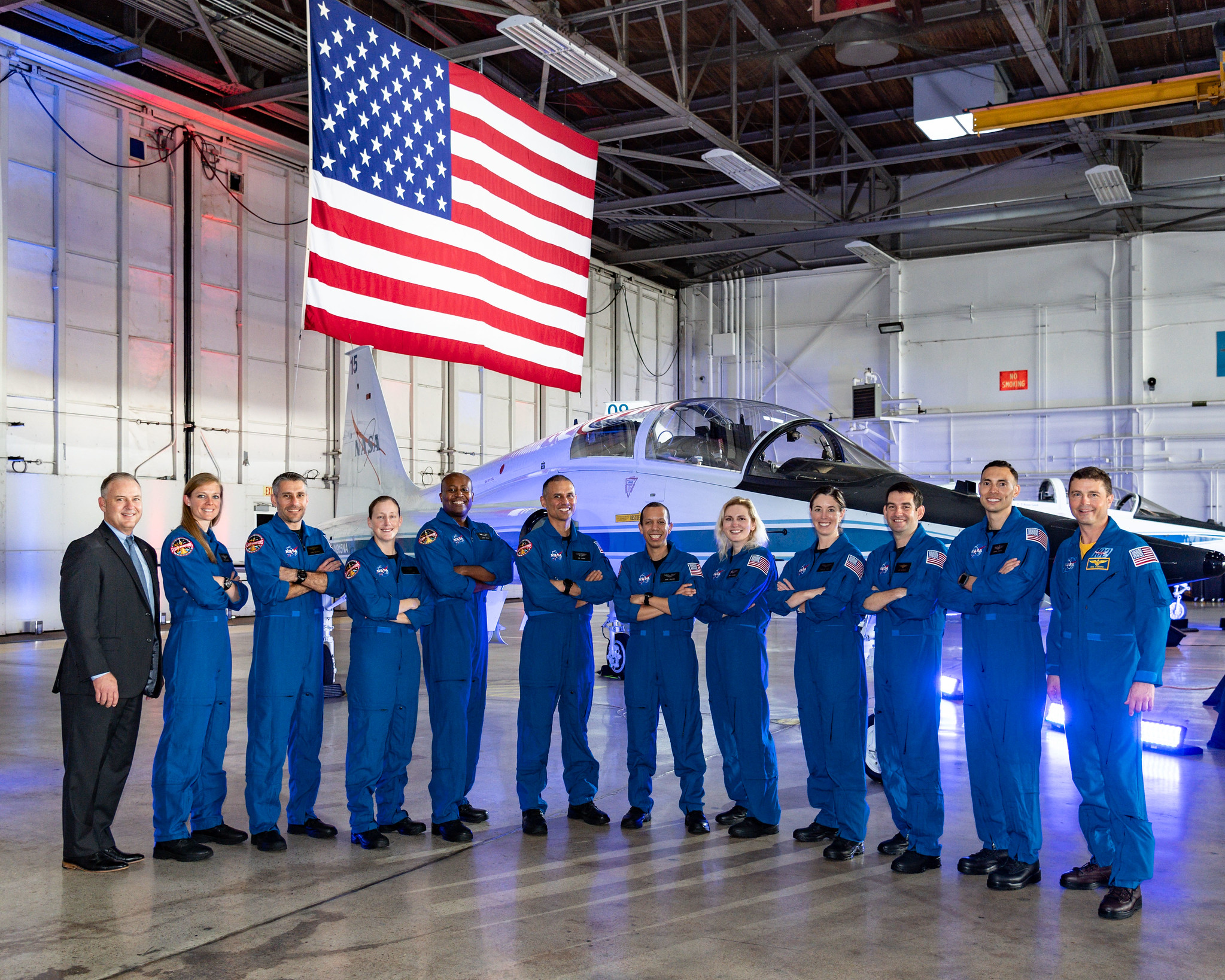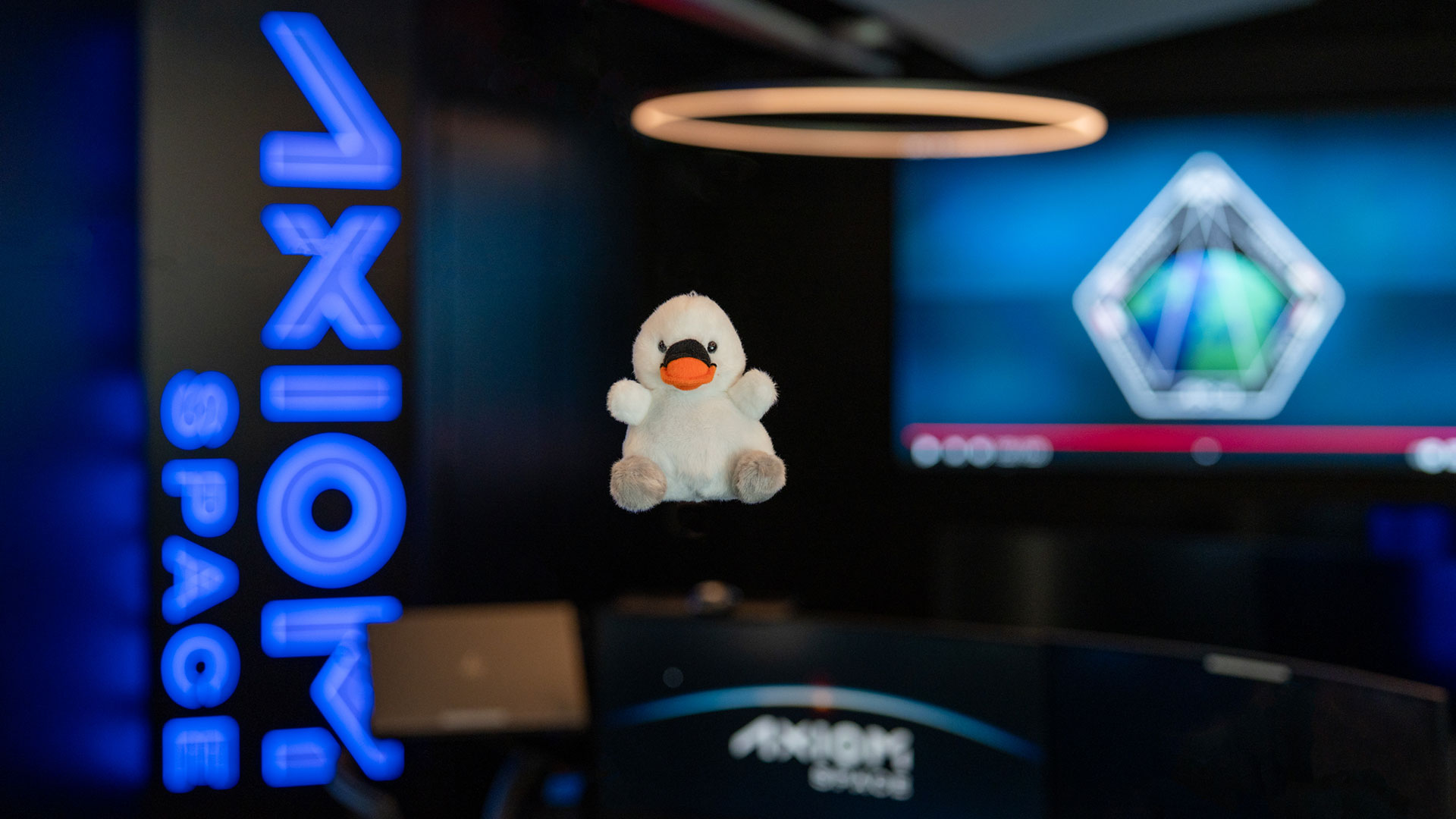Astronauts celebrate mentorships and milestones on International Women's Day 2024 (exclusive)
"You can't be so afraid of a failure that you're not even willing to try."

New NASA astronaut Jessica Wittner has spent a lifetime in the military, where she has always seen fewer women than men.
To Wittner, who graduated from basic astronaut training with nine other NASA colleagues on Tuesday (March 5), the big lesson learned is to encourage all genders to "follow your dreams," even as obstacles arise.
"It can be a scary thing to do," Wittner told Space.com in an exclusive interview Tuesday, about the choice to be a minority gender as a U.S. Navy test pilot and lieutenant commander. "But I think it is so important to not give up. Just keep on that path. And do what you love."
Luckily, Wittner had mentors from all genders helping her on the journey, showing that International Women's Day today (March 8) has bright representation in space. Three NASA astronauts are in orbit right now, aboard the International Space Station (ISS): Jasmin Moghbeli, Loral O'Hara and Jeanette Epps. (O'Hara and Moghbeli also performed the fourth all-female spacewalk, on Nov. 1, 2023.)
In a few weeks, NASA astronaut Suni Williams may rocket to the ISS as well aboard the first-ever crewed Boeing Starliner mission. And chances to fly are higher than ever, regardless of gender.
Related: NASA graduates new astronaut class as it begins recruiting for more
While women's participation in space continues to meet highs, there are historical inequities to address. For example, NASA statistics show that only 61 of the 360 astronauts the agency has recruited since 1959 are women.
Get the Space.com Newsletter
Breaking space news, the latest updates on rocket launches, skywatching events and more!
And, of the more than 600 people who have flown to space to date, just 75 were female, according to the agency. (The definition of "space" may vary, as different entities have different altitudes for where they say the border of space begins.)
The big gap in gender is in part due to how early space programs were managed: They recruited largely from the military, which was pretty much male-only in the 1950s and 1960s. NASA selected its first female astronauts in 1978 and has been working harder in recent years to even out numbers with men; non-binary and other genders have not yet been disclosed among professional astronauts.

That said, space is becoming more inclusive, and easier to access, than ever before. NASA and professional agencies have numerous opportunities coming up: possible moon or lunar space station flights for the Artemis program, or multi-month missions on the International Space Station and forthcoming commercial space stations.
Space tourists can fly with Virgin Galactic and Blue Origin to suborbital space, if they have the money or sponsorship, while entities like Axiom Space operate commercial missions to orbit. (Some billionaires are also running their own space missions, like the Polaris Program funded by Jared Isaacman, or dearMoon, funded by Yusaku Maezawa.)

To be sure, working in the space program doesn't necessarily mean leaving the ground, as women participate in fields ranging from astrophysics to community astronomy to education. And at NASA, the agency is giving high leadership opportunities to women, too. NASA's Dana Weigel, for example, will become the first female ISS program manager on April 7, the agency recently announced.
New NASA astronaut Deniz Burnham, who managed onsite drilling projects on oil rigs while serving in the U.S. Navy Reserves as an engineering duty officer, told Space.com that mentorship and opportunities from the community were key to her own journey to graduating from astronaut basic training this month.
"I'm someone who is always forever grateful to the mentorships I that have had in my life, both men and women, and it all starts with my mother: I watched her graduate college. I watched her commission in the Air Force and pursue her big dreams," Burnham told Space.com in an exclusive interview Tuesday.
Her family and her workplace always encouraged her dream to become an astronaut, and mentors accrued as she went along — during her internship at NASA's Ames Research Center in California and in the oil and gas industry, for example.
"I was most impressed with the people willing to share their knowledge," Burnham added. "There was no judgment with your background, and they were willing to push you and challenge you to improve. Not everything has to come easy, right? You can't be so afraid of a failure that you're not even willing to try."
Join our Space Forums to keep talking space on the latest missions, night sky and more! And if you have a news tip, correction or comment, let us know at: community@space.com.

Elizabeth Howell (she/her), Ph.D., was a staff writer in the spaceflight channel between 2022 and 2024 specializing in Canadian space news. She was contributing writer for Space.com for 10 years from 2012 to 2024. Elizabeth's reporting includes multiple exclusives with the White House, leading world coverage about a lost-and-found space tomato on the International Space Station, witnessing five human spaceflight launches on two continents, flying parabolic, working inside a spacesuit, and participating in a simulated Mars mission. Her latest book, "Why Am I Taller?" (ECW Press, 2022) is co-written with astronaut Dave Williams.
